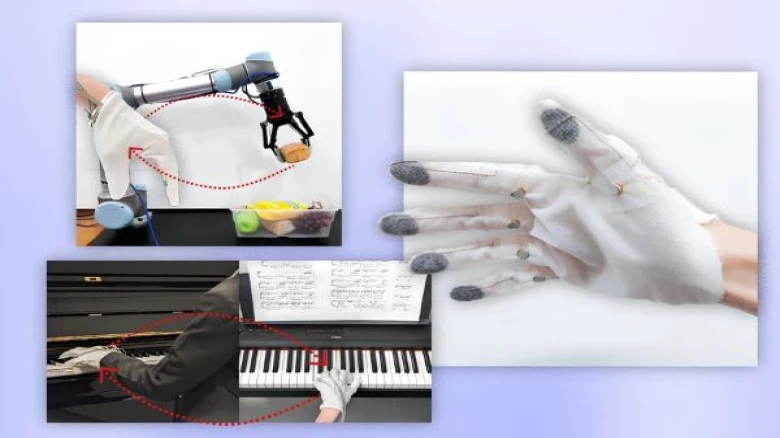Regional

"This work is the first step to building personalized AI agents that continuously capture data about the user and the environment,..."
Digital Desk: MIT researchers have introduced a groundbreaking smart glove designed to enhance tactile learning through a combination of haptic feedback and artificial intelligence. Developed at MIT's Computer Science and Artificial Intelligence Laboratory (CSAIL), this digitally embroidered glove features tactile sensors and haptic actuators embedded into textiles, providing a unique and personalized learning experience.
The innovation lies in a machine-learning agent accompanying the smart glove, capable of adapting to individual users' reactions to tactile feedback. Yiyue Luo, lead author of the paper and a PhD student in MIT’s Department of Electrical Engineering and Computer Science, explained the motivation behind the project: "The main challenge in relaying tactile interactions is that everyone perceives haptic feedback differently."
To address this challenge, the researchers utilized a digital embroidery machine, transforming ordinary gloves into smart gloves within just 10 minutes. The technology captures the hand and finger movements of a teacher, surgeon, or machine operator and translates them into haptic feedback for the learner. Remarkably, the machine-learning agent fine-tunes feedback responses for each user in a mere 15 seconds.
In a demonstration, an expert recorded a piano tune using the glove, converting the finger presses into haptic feedback for students. The glove's actuators vibrated in response to the keys below, optimizing directions for each user based on their touch interactions. The applications extend beyond musical education, as participants in laptop games experienced improved performance with optimized haptics.
Wojciech Matusik, senior author and MIT professor, envisions broader implications: "This work is the first step to building personalized AI agents that continuously capture data about the user and the environment, assisting them in performing complex tasks, learning new skills, and promoting better behaviours."
The smart glove technology is not limited to fingers and hands; it can extend to guide other body parts like feet, hips, and more. The potential applications are vast, from training surgeons and assisting in virtual reality to teaching complex skills like aeroplane piloting. The rapid adaptability of this technology showcases its potential to revolutionize personalized learning experiences and human-robot interactions across various domains.
Leave A Comment